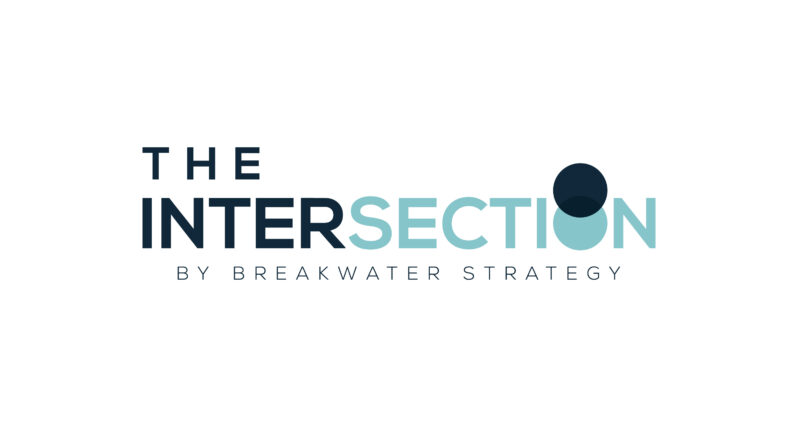Society’s expectations of business have evolved a great deal in recent years. But one constant has been the demand that companies obey the law. That has always been bedrock. But what happens when law and regulation becomes fluid, sometimes even unmoored from plain written statute?
Consider just a few examples of the past weeks. In Switzerland this past weekend, banking authorities rewrote the rules overnight to push through a shotgun acquisition of Credit Suisse by UBS, wiping out the former’s bondholders in the process. Here in the United States, financial regulators took the $250,000 limit on FDIC guarantees and turned it into what seems like limitless bank deposit insurance.
It’s not just banking. Across the U.S., companies that follow one state’s laws on hot-button issues like guns or abortion are facing extra-judicial punishments in other states. Mergers and acquisitions are being routinely blocked by U.S. regulators despite conforming to the strict letter of the relevant regulations. Meanwhile, Congress is swiftly passing sweeping laws empowering the U.S. government to enact unprecedented restrictions or even bans on Chinese companies like TikTok.
The point here isn’t to debate the constitutionality, legality, or wisdom of these State actions. Rather, it is to put the question to business leaders: how will your organization position itself to continue to play and win at a game even if the rules keep changing?
The answer has two parts.
The first lies in accepting things as they are and adapting. Today’s corporation requires an unprecedented level of flexibility and agility in its operations, policies, compliance practices and overarching strategy. Fixed positions are a risk factor. Companies need to spend real time and effort in foresight exercises that don’t simply explore how they will succeed within the existing legal and regulatory frameworks, but also how those laws and regulations might suddenly change –– whether due to actions by legislatures or through implementation by regulators. What adaptations would be required under those circumstances? Companies need to be prepared and they need to know the signals that would indicate an increased likelihood of legal or regulatory shifts so they can stay a step ahead.
That’s true if you are a bank waking up to the reality that for the foreseeable future the core regulations of your industry will be determined to a great degree by fiat from the lead federal regulators. It is equally true if you’re running just about any large business with operations across state and national borders, grappling with the emerging reality of activist legislatures that are creating increasing dissonance and conflict in how those jurisdictions oversee the marketplaces.
The second implications for this new era for business is even harder than the call for maximum flexibility. It is the need to consider whether and how to directly engage with legislatures and regulators when those bodies act in ways that are deemed to be harmful or simply illegal or unconstitutional.
Taken to its most extreme conclusion, the trend toward legislative and regulatory unpredictability is fundamentally incompatible with a thriving private sector. While companies can –– and must –– be realistic about adjusting to the twists and turns of politics, that does not mean simply accepting that the rules aren’t the rules, or that businesses should just accept being used as footballs in fights between the legislatures of different states or countries.
At some point, business leaders have to have the courage to call the State to task, making clear the costs and negative externalities created when regulators overstep their authority, or when lawmakers create chronic unpredictability in the operating environment.
That is a hard message for a business to deliver. No company wants to put itself at cross-purposes with government. Suing the government, criticizing its actions publicly, engaging in adversarial actions through the legislative process –– those are all deeply uncomfortable for most businesses and should be avoided when possible.
But there may come a time where that kind of action is required. Ideally, it is undertaken in partnership with many companies from across industries, along with other stakeholders like academics, NGOs, and everyday citizens with diverse interests and perspectives coming together.
We may not yet be at a point where that kind of action is broadly necessary, at least here in the U.S. Overall, America’s governing institutions at all levels continue to exercise reasonable restraint and our courts continue to provide appropriate checks when the legislative and executive branches go beyond their authority. Yet every board and CEO should be watching the trends and actively considering when and how that might change. They should start finding appropriate venues to discuss these questions with other business leaders and preparing contingency plans.
The intersection of business and law is no longer the sole responsibility of the lawyers. It is now a significant, highly unpredictable aspect of the strategic landscape. All those charged with navigating companies through these choppy times need to understand these dynamics, watch them vigilantly, and prepare themselves to act if and when the situation requires.
Reach out to Breakwater Strategy to learn more, or to chart your course ahead.

